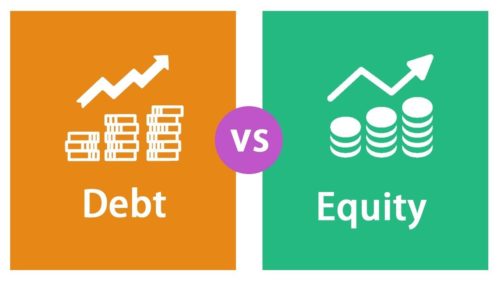Financing a business has always been difficult for entrepreneurs, especially small businesses. There are two ways to fund a firm. Debt financing is quite common among aspiring entrepreneurs, while equity financing is a less popular option. Many small business owners are torn between equity and debt financing. It’s never clear whether to seek debt funding via a business loan or seek equity financing via an investor. Let’s have a look at the comparison of both these financing options to find the best option for your company.
Also Read: Top 5 Financing Options For Retail Businesses
What is Debt Financing?
You probably know more about corporate debt financing than you think. A bank or other lender provides debt financing. Although private investors can also offer, it is rare.
This is how it works: You go to the bank and fill out an application when you need a loan. If your company is new, the bank will evaluate your credit. Banks will investigate additional sources for organizations with a complex corporate structure or a long history. The bank might review your books along with your business credit history. Make sure your business records are orderly before applying. Once approved, the bank will set up payment conditions, including interest.
Pros and Cons of Debt Financing
There are numerous advantages to financing your business with debt.
- The lending institution can not influence the way you run your business, and it has no ownership interest in it.
- Once you have repaid the debt, your connection with the lender comes to an abrupt stop; particularly useful as your company’s worth grows.
- It is possible to deduct the interest you spend on debt financing as a business expense from your taxes. This expense fits well into your forecasting models as the monthly payments, as well as the split in the payments, is calculated beforehand.
There are downsides to debt financing to consider.
- Startups and companies in the early stages can’t always have enough money to cover debt payments.
- During a recession, small business credit may be considerably reduced. In severe economic circumstances, debt financing might be difficult to come by unless you are exceedingly qualified.
Also Read: The Beginner’s Guide To Invoice Financing — What It Is And How It Can Benefit Your Business!
What is Equity Financing?
Equity financing is looking for investors interested in purchasing a stake in your company. Think of it as selling a share of your company’s stock to investors who will then receive a cut of any future earnings your company generates. The provision of stock in exchange for capital, rather than the repayment of the loan’s principal and interest, is common among business owners seeking finance.
Under this method of financing, there is no requirement to pay back the investors on a regular basis, as is the case with other forms of funding. Raising equity funding from private or “angel” investors, friends, and family and selling stock in your company to outside investors are all feasible ways of obtaining equity capital. Venture capital, for example, can be bought and sold on a professional stock exchange platform, similar to how stocks are traded on the NASDAQ.
Also Read: The Advantages of Debt Financing For Your Business
Pros and Cons Of Equity Financing
Equity financing comes with considerable benefits –
- The most significant benefit is that you don’t have to pay back the money you borrowed. Investors are not considered creditors if your company files for bankruptcy. As a result of their ownership in your company, they lose money as well.
- Because you don’t have to make payments monthly, you’ll have more money available to cover operating expenses.
- Investors are cognizant of the fact that starting a business takes time. You’ll acquire the money you need without the stress of having to see your product or company succeed in a short period of time.
Equity financing has drawbacks too.
- Your company loses a piece of its ownership when you accept equity funding. The more substantial and risky the investment, the more the investor wants to be involved.
- Before making any decisions, you’ll need to talk to your investors. If an investor owns more than half of your company, you now have a boss who expects you to answer to them.
How to Choose The Best One For My Business?
It is critical to financing a company’s operations. Almost every small firm is likely to be reliant on outside financing. During the lifespan of any new or expanding business, there is an unavoidable necessity for financial resources. A company that does not receive inflows of capital will be unable to expand and will be more likely to plateau and stagnate.
Choosing the most appropriate funding model for a small business is crucial. If you put your business in the wrong hands, you may lose a significant percentage of your profits or be forced to enter into a long-term repayment plan that would restrict your ability to grow.
In most circumstances, it is preferable for your company if you can avoid obtaining funds from a typical financial institution. For small businesses that do not have access to family or friends who can lend a helping hand, debt finance is the most accessible source of capital. Equity financing is a more viable option when your company expands and progresses through the product development process. Less is more when it comes to financing your company’s growth and expansion.


